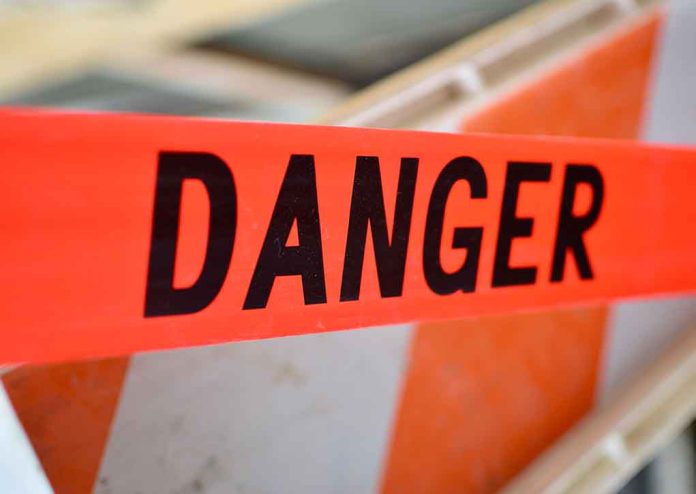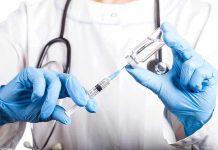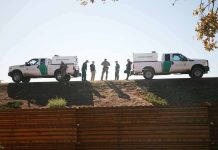
Here we go again. The season of geopolitical theater and disinformation is upon us, fueled by — you guessed — Russia. What’d they do this time? Now they’re claiming the US has expanded bioweapons research within Africa. Russia – the same country that accused the US of having biolabs inUkraine. What evidence do they have? Apparently it’s their word (you know, the ones with their own murky bioweapons history) against ours. Feel free to insert an eye roll right here.
The Russian Claims
Russia’s allegations, as reported by SHTF Plan, suggest that the U.S. is ramping up its biological weapons research in Africa, a claim that Moscow insists is backed by “proof.” This narrative fits snugly into Russia’s broader strategy of accusing others of the very actions it is often suspected of engaging in. It’s a classic case of the pot calling the kettle black, but with a twist of Cold War nostalgia.
The Propaganda Machine
The timing of these allegations is hardly coincidental. Russia has a long history of spreading disinformation about U.S. biological research facilities, dating back to the Soviet era. This latest claim is part of a broader disinformation campaign aimed at diverting attention from Russia’s own actions and sowing discord among its adversaries.
The Kremlin’s narrative has found a receptive audience among certain segments of the American public, particularly those who are already predisposed to distrust the government. This includes COVID-19 conspiracy theorists, QAnon followers, and some supporters of former President Donald Trump. The theory has been amplified by prominent figures in conservative media, such as Fox News host Tucker Carlson and Donald Trump Jr., who have both suggested that the U.S. is involved in nefarious activities at these labs.
The Reality Check
Despite the sensational claims, the reality is far less dramatic. The U.S. does indeed support biological research laboratories in various countries, including Ukraine and potentially Africa, but these labs are part of the Biological Threat Reduction Program. This initiative, which dates back to the 1990s, aims to prevent the proliferation of biological weapons and reduce the risk of deadly outbreaks, whether natural or man-made.
Filippa Lentzos, a senior lecturer in science and international security at King’s College London, has emphasized the transparency of these laboratories. “The labs are not secret. They are not being used in relation to bioweapons. This is all disinformation,” she stated in an email to the Associated Press.
The Far-Right Echo Chamber
The persistence of these conspiracy theories in the U.S. can be attributed to a combination of factors, including the echo chamber effect of social media and the influence of certain media personalities. The theory has spread across various platforms, including Telegram and Gab, which are popular among far-right Americans and COVID-19 conspiracy theorists.
The World Health Organization has even weighed in, asking Ukraine to destroy any samples that could pose a threat if released, either intentionally or accidentally. This request underscores the potential dangers of biological research but does not support the notion that these labs are involved in bioweapons development.
The Bigger Picture
The broader context of these allegations is Russia’s ongoing information war against the West. As highlighted by Foreign Policy, Russia has been remarkably successful in spreading disinformation, not just in the U.S. but also in Europe. This strategy involves a four-step playbook: deny everything, unleash false narratives, accuse others of what Russia is doing, and repeat (Foreign Policy).
In this case, the Kremlin’s goal is likely twofold: to distract from its own actions and to undermine trust in Western institutions. By accusing the U.S. of expanding its bioweapons research in Africa, Russia aims to create a smokescreen that diverts attention from its own activities and sows doubt among the American public.
Conclusion
In the end, Russia’s latest allegations about U.S. bioweapons research in Africa are just another chapter in its long history of disinformation. While these claims may find an audience among certain segments of the American public, they lack credible evidence and are contradicted by the transparency and purpose of the U.S. Biological Threat Reduction Program. As always, it’s essential to approach such sensational claims with a healthy dose of skepticism and a keen awareness of the broader geopolitical context.
So, the next time you hear about the U.S. allegedly expanding its bioweapons research in Africa, remember to take it with a grain of salt—or perhaps a whole shaker. After all, in the world of international politics, not everything is as it seems, and sometimes the loudest accusations come from those with the most to hide.
Reactions from Around the Web:
As you can see, the responses run the gamut.
Emily Gabs blames biolabs for ebola:
Reset IV
The CIA, the Order, and others must exit Africa. So also the biolab infrastructure.
The biolab architects, engineers, designers, operatives, security, etc, must leave Africa for their own good.
Biolabs are why we have ebola.
— Emily Gabs (@emilygabswell) June 27, 2024
Ian wrote about this in 2022 – the same exact scenario:
Russian Embassy in South Africa trying the Ukraine Biolab conspiracy again but with a new flavor pic.twitter.com/p8UxojYdOi
— Ian (@Red_Mallard500) September 19, 2022
Quote of the Day:
“In the field of biological weapons, there is almost no prospect of detecting a pathogen until it has been used in an attack.” ~Barton Gellman
Joke of the Day:
Did you hear about the physicist who divorced the biologist?
There was a lack of chemistry in their lives.





